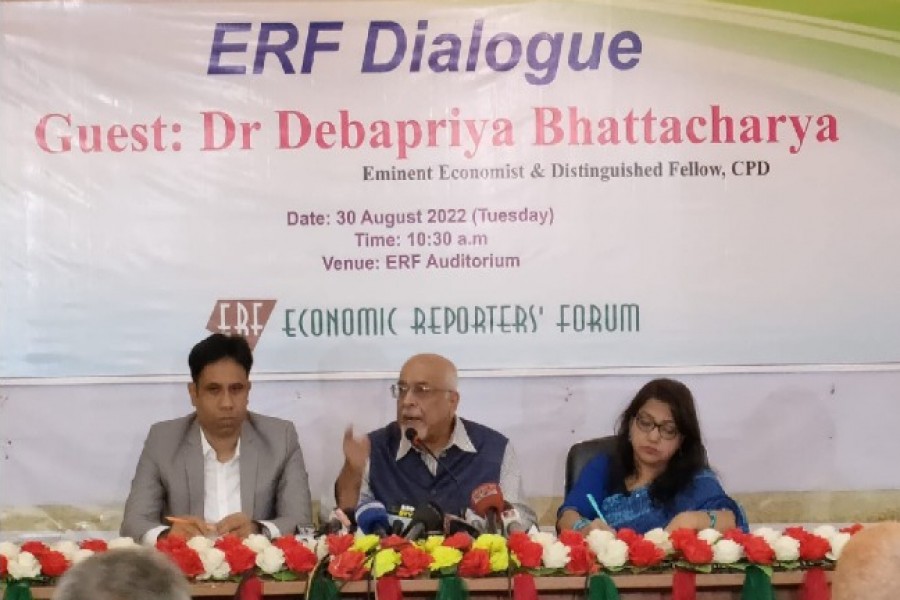Noted economist Dr Debapriya Bhattacharya said that the recent abnormal hike in fuel prices and then cutting it by only Tk 5.0 per litre is a classic example of economic mismanagement.
Such decisions are being made due to lack of expertise, he added.
Debapriya, distinguished fellow of the think tank Centre for Policy Dialogue (CPD) was speaking at the 'ERF Dialogue' organised by Economic Reporters Forum (ERF) on Tuesday, reports UNB.
He said Bangladesh's main problem is not in the foreign transactions, rather it is the weakness of the domestic financial sector.
He said the global recession may extend up to 2024, and its adverse impact can be reduced by strengthening the domestic economy.
He also identified four deviations in the domestic economy, which may create turmoil in Bangladesh.
These deviations are: not getting adequate investment in the private sector, weakness in revenue generation, lack of necessary investment in education and health sectors, and discrimination in the social safety net programmes.
He said the growth is now being propelled by public investment as the private investment ratio to GDP has not increased over the years and still hovering around 23 to 24 per cent of GDP. On the other hand, the ratio of public investment to GDP has increased to 7 to 8 per cent from 5 to 6 per cent.
“There has been no such foreign direct investment as the FDI is still below the one per cent of GDP which is not enough for a dynamic economy,” he said.
Referring to the attaining of GDP growth at 5 to 7 per cent on average over the last 10 years, the eminent economist said this suggests that the income is growing. “Then why the desired revenues are not being collected…is there any mismatch in the calculation?’
He opined that due to the comparatively lower level of revenue collection, the government has not been able to import food grains while it has also not been possible to increase the coverage of food assistance.
“The government is being unable to reduce the duty and tariff for which it has relied heavily on the indirect tax to collect revenues which have put the commoners under pressure,” he added.
Debapriya alleged that the health and education sectors are not enjoying the desired level of investment although hefty investments are being made in the physical infrastructure sector.
He said the 20 mega projects are enjoying around 2 per cent investment of GDP whereas the investment in the health and education sectors is one per cent each of GDP.
He noted that the political force has been trying to make visible physical infrastructural development in a speedy manner in a bid to fulfil the political deficit.
He alleged that there has been large-scale discrimination in the distribution of social safety net allowances during the COVID-19 pandemic as it was then proved that access to government services was not easy for the weak people.
Citing that a competitive business environment is not being created in the country, he said that certain individuals or quarters are getting preferences from the policy makers for which there has been an inadequate flourish of talent-based and international standard human resource development.
ERF président Sharmeen Rinvy presided over the programme, moderated by ERF general secretary SM Rashidul Islam.


